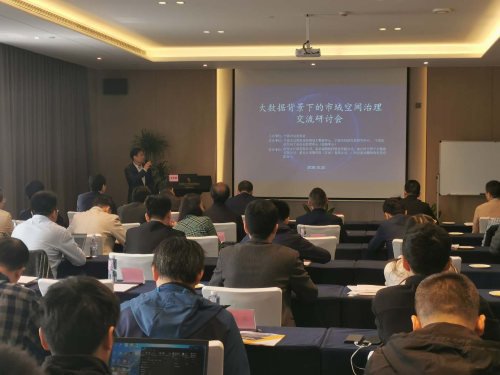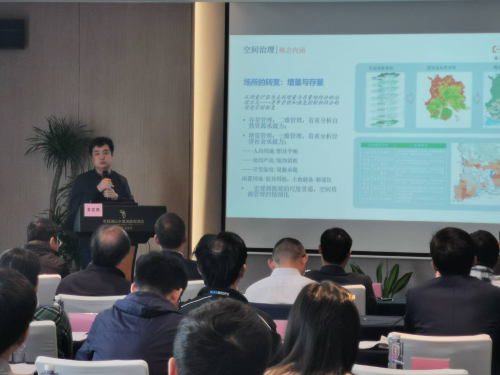
...
News & Events
|
|
|
Seminar on Municipal Spatial Governance in the Context of Big Data Concludes Successfully
In October, near the beautiful Dongqian Lake, a thematic exchange seminar on municipal spatial governance in the context of big data was successfully concluded. The seminar was held by Ningbo Information Association, and undertaken by Big Data Center under Ningbo Bureau of Natural Recourse and Planning, Ningbo Economic Information Research Center, and industrial management center under Ningbo Municipal Economic and Information Technology Bureau (innovation center). Leaders of information association, economy and information, capital planning, traffic, housing and construction and other competent departments and related enterprises attended this meeting.
During the seminar, various departments and corporates carried out in-depth discussions on all aspects of municipal spatial governance. First, we exchanged understandings of the work of spatial governance under the big data background, analyzed the concept and meaning of spatial governance, and discussed the function of big data in such processes of spatial governance as problem-finding, quantitative evaluation, prediction and simulation, and emergency response plan. Second, we discussed ideas on how the spatial governance work should be constructed, with a focus on the current progress made in provincial spatial governance work and resolution of transforming a provincial platform into an interconnected provincial operating system for spatial governance. Third, we shared core technologies relating to spatial governance, mainly including a geographical information system that integrates indoor-outdoor, above-ground and underground, two- and three-dimensional information, multisource information fusion based on spatial objects, distributed spatial operators, autonomous and controllable technological systems, and etc. Fourth, we discussed new ways to combine industrial management with spatial governance, with an emphasis on implementing targeted governance over industries to know better about how recourses are occupied and used. Fifth, we discussed typical cases of spatial governance, with a focus on the synergy environmental monitoring through an integration of satellite remote sensing monitoring, aerial remote sensing monitoring, and ground station monitoring, on underground spatial assets management based on pipeline health codes, sponge city evaluation, dynamic flood risk and other scenarios, and on the precise allocation of industrial land based on visualized information of land parcel portraits, enterprise portraits and project portraits. This seminar encompassed wide and in-depth contents of spatial governance, and the attendees can learn more about it from discussions on what is spatial governance, how it is constructed, what are its core technologies and related application cases.
Spatial governance is an important facet in modern state governance, and municipal spatial governance is also a critical job of Ningbo. All departments need to be more aware of the overall situation and work together to get it right. This seminar not only provides a good platform for all departments and businesses to discuss with each other, but also provides us with new ideas and solid foundations for how to better promote the work of municipal spatial governance.


